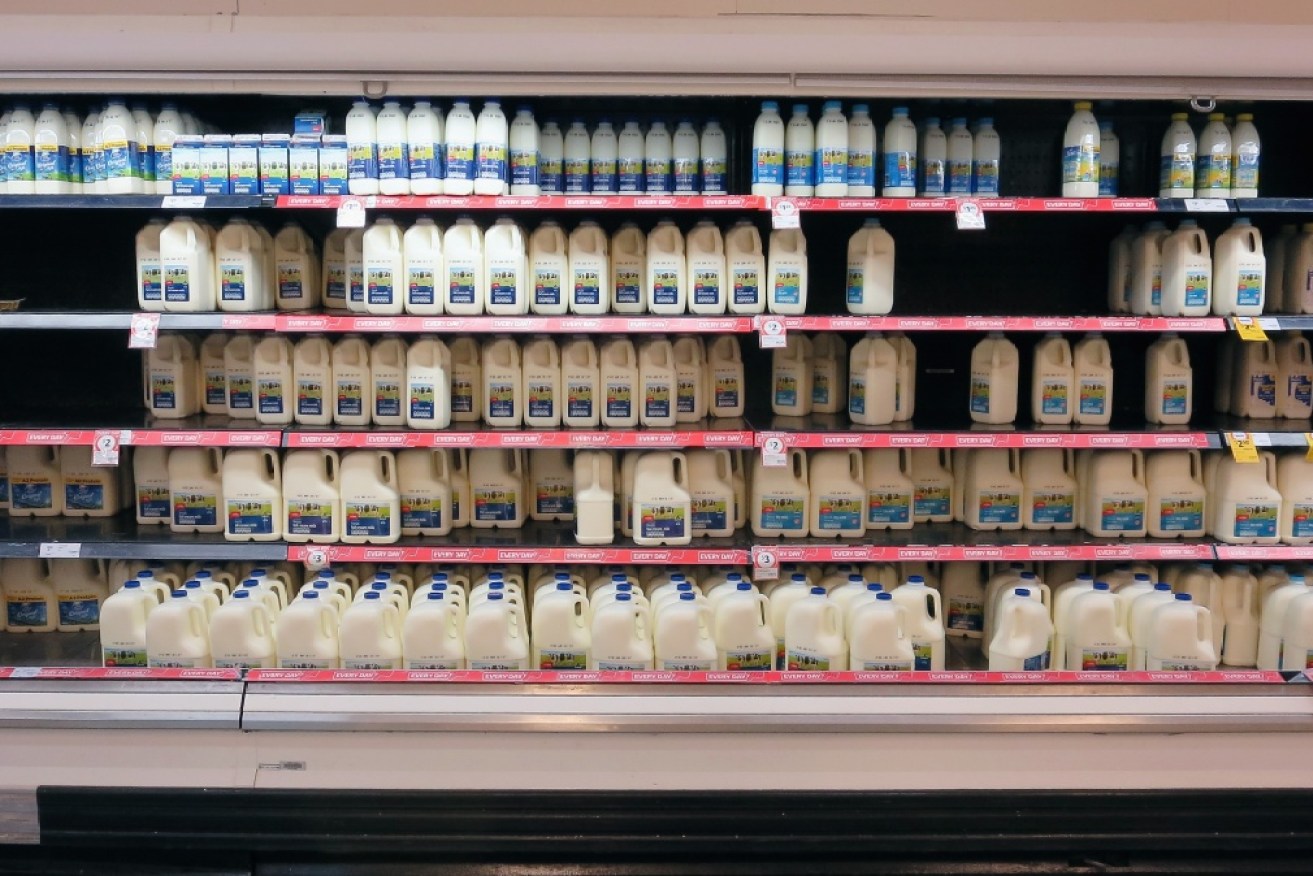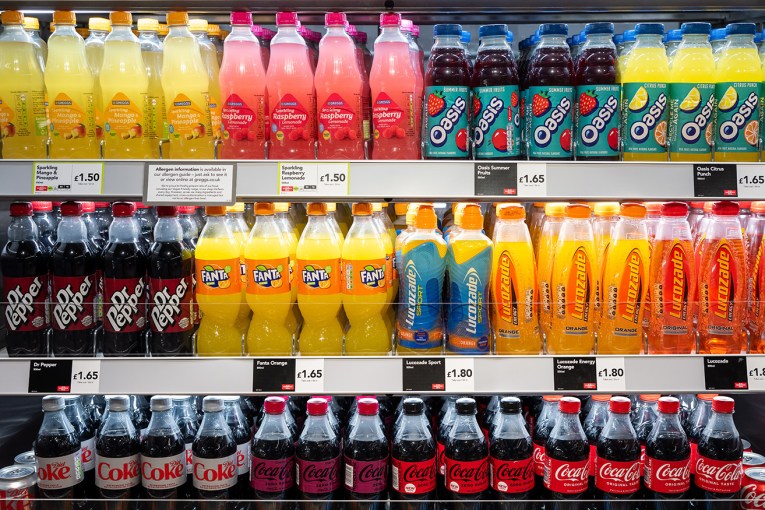Why Australians are buying full-cream milk and veering away from low-fat alternatives


Dieting trends and health myths are causing consumers to veer away from low-fat milk. Photo: Getty
Australians are ditching skim milk and other low-fat dairy options and in favour of regular, full-cream milk as consumer appetites shift towards wholefood, ‘clean-eating’ diets.
Ian Halliday, Dairy Australia’s managing director, has revealed full-fat milk sales surged by almost 10 per cent over the past year alone, while consumption of low-fat and other modified milk varieties fell by about 6 per cent.
No-fat milk sales have dropped by almost 20 per cent since 2014/15.
“We are seeing, on a global basis, a move back towards full-fat dairy products,” Mr Halliday told a Senate Estimates hearing, pointing to recent research showing the health benefits of dairy.
Dietitian Lauren McGuckin, a spokeswoman for the Dietitians Association of Australia, said there were several health factors that could explain this shift in consumer behaviour.
“Wholefood diets are becoming more popular and people are steering clear of more processed foods, whereas full-fat products are not as processed,” she said.
“This is true because some nutritional benefits – like calcium and vitamins – are lost in the process of reducing the fat content, but quite often it’s added back in.
“The high-fat, low-carb diet trend could also quite possibly be having an impact.”
Ms McGuckin said there was also a common myth that lower-fat milks contain added sugar.
“People think that in order to replicate the flavour of regular milk, the fat content is replaced with sugar to make it taste better, and this is just not the case,” she said.
“When it comes to plain milk, none of these have added sugar – regardless of whether you’re talking about full-fat, low-fat or skim milk.”
But it’s no wonder consumers are confused, with all the mixed messages they have been presented with over the years as new research emerges.

The contrasting messages on TIME magazine covers. Photo: Time
Dr Suzie Ferrie, a dietitian at the Royal Prince Alfred Hospital in Sydney, said the increase in full-cream milk sales is not limited to Australia, but part of a global shift.
“There is increasing suspicion of how our food is manipulated by producers,” she said.
“Most organic dairy producers don’t make reduced-fat products, so people who are choosing ‘organic’ or ‘clean eating’ or ‘environmental eating’ or ‘sustainable eating’ are mainly having full-cream milk.
“The big Paleo eating fad was also quite influential in putting the message out that fat is good, and animal fat is good.”
John Droppert, an industry analyst at Dairy Australia, described the change in consumer behaviour as a “significant shift”.
“And this is bigger than milk and it’s bigger than the dairy industry,” he said.
“People are after a more natural product.
“There has been a similar effect on the butter industry. Consumers are turning away from margarine alternatives in favour of butter.”
Mr Droppert said the change in consumer preference was likely to endure.
“This is a pretty sustained shift. It’s not a short-term change in behaviour,” he said.
“I think we’ll see the volume of consumers who have changed back to regular milk will largely stay with it.”
Health advice
Ms McGuckin advised that anyone concerned about their weight or at risk of heart disease should avoid full-fat milk.
“But a splash of milk on your cereal or in your coffee is nothing to worry about,” she said.
“If you’re drinking glasses of it a day, then it might be best to switch back to a lower-fat option.”









